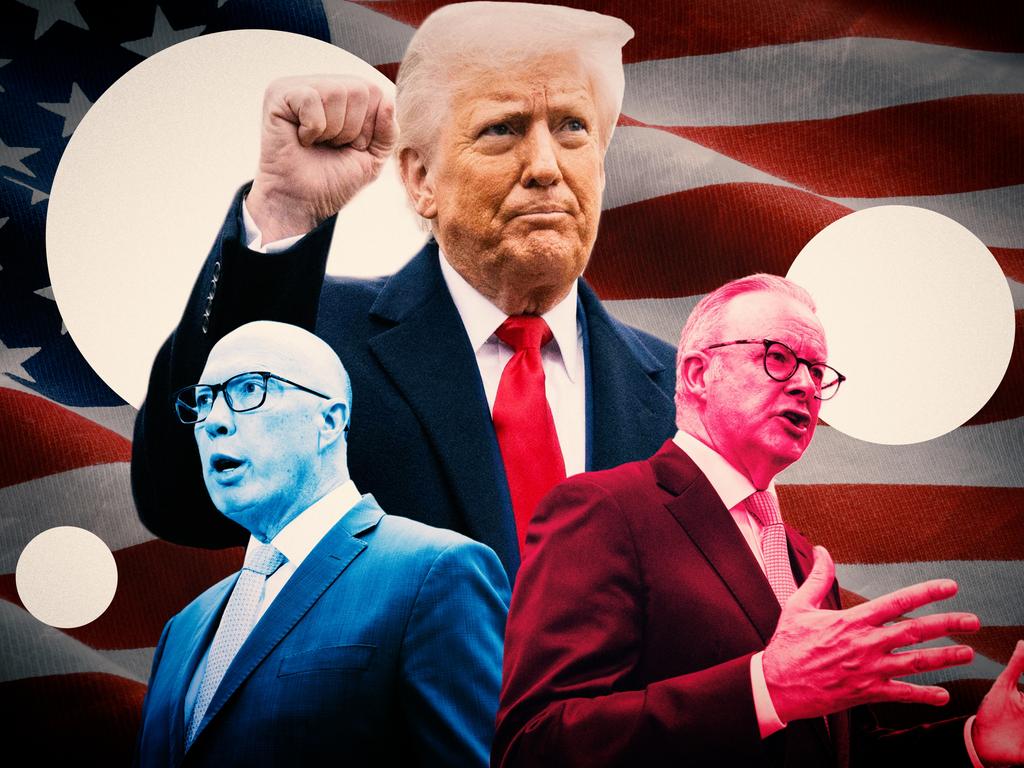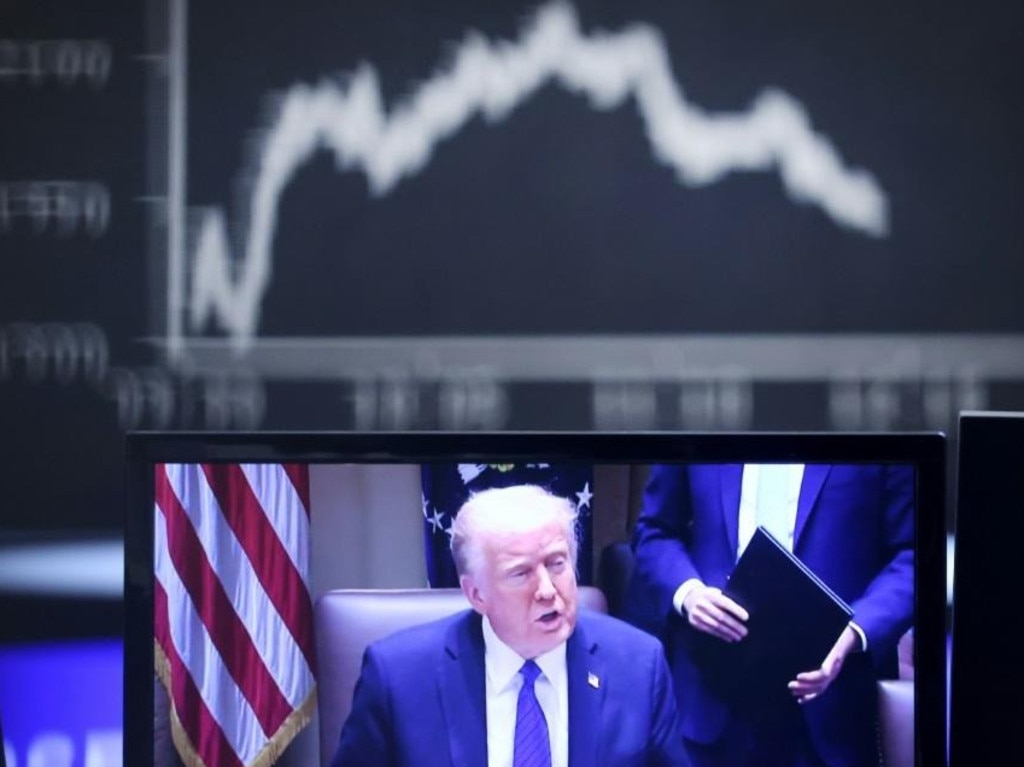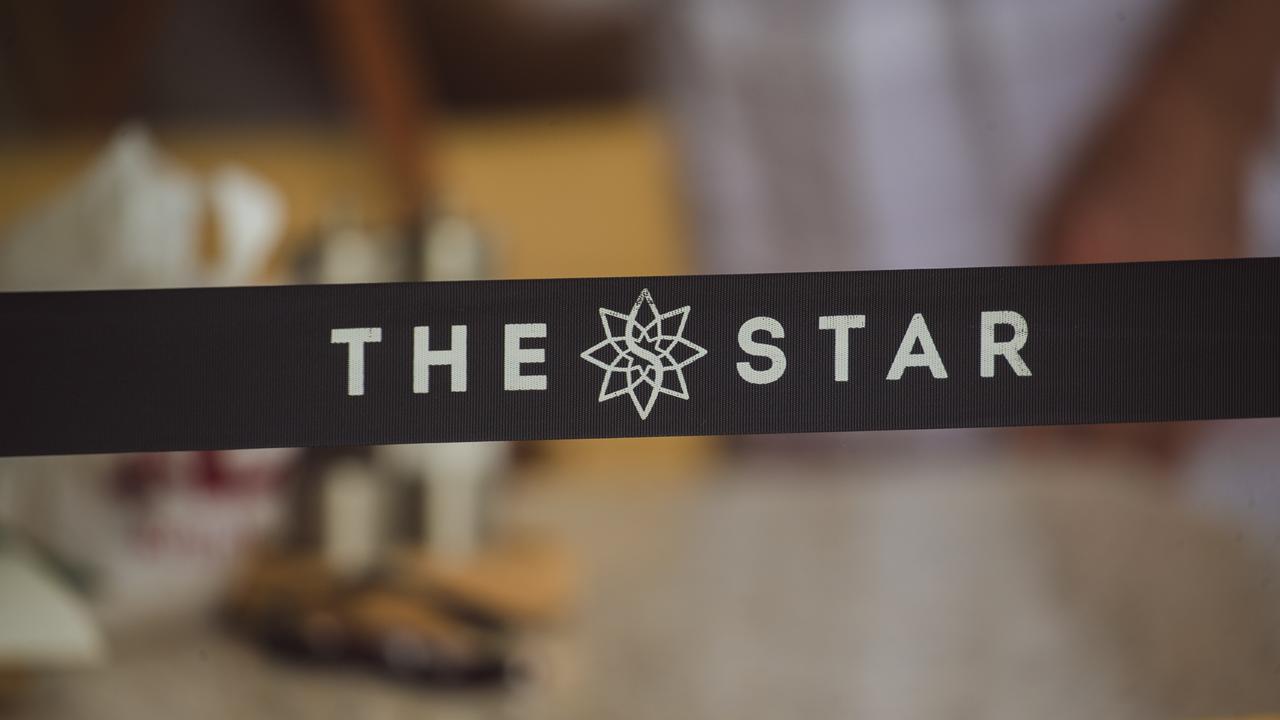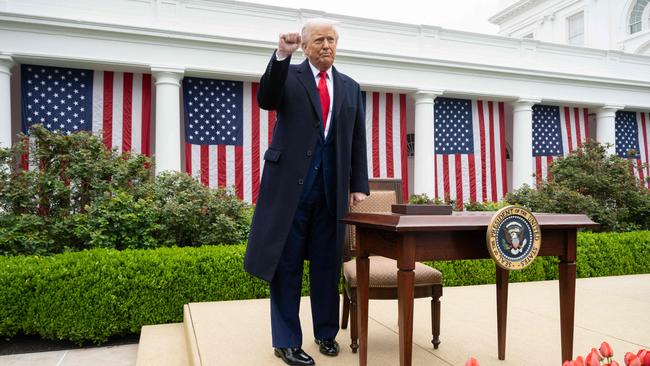
It is Lent. For Christians it’s a time to contemplate the great arc of their faith: life, death and resurrection.
Whether you believe or not, there is beauty in the thought that hope can triumph over death. That life has a meaning science will never measure, a truth that can be revealed only by artists, musicians, poets and prophets.
The old faith is ebbing. Many would not now make the connection between the story of Christ and the holiday they enjoy as Lent ends.
They probably wonder why the date moves from year to year. The cross on the Easter bun is no more than a decoration. The season is now, for many, unintelligible, meaningless.
But this year Lent has given everyone pause to wonder about their beliefs.
It’s a time to ponder the twilight of a global order we took for granted. Time to marvel at the death of a secular faith: that the liberal, rules-based, democratic world would endure, expand and shelter us.
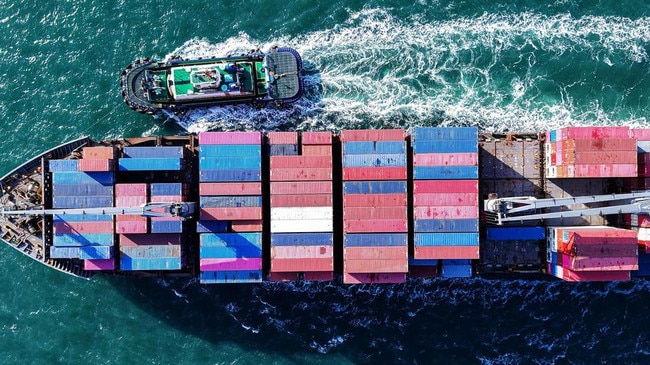
On one level, President Donald Trump’s “Liberation Day” tariffs are just another trade distortion in a world already thick with them.
China manipulates its currency, subsidises whole industries and, as Australia has learned, uses trade as a weapon. The EU throws up regulatory walls and slaps carbon levies on imports from countries that don’t share its ideology.
But what makes this moment different is not the act but the actor. The US built the architecture of the post-war order: rules, alliances, institutions, open markets. Now it is walking away from all of it. The tariffs are another milestone on America’s march out of its own design.
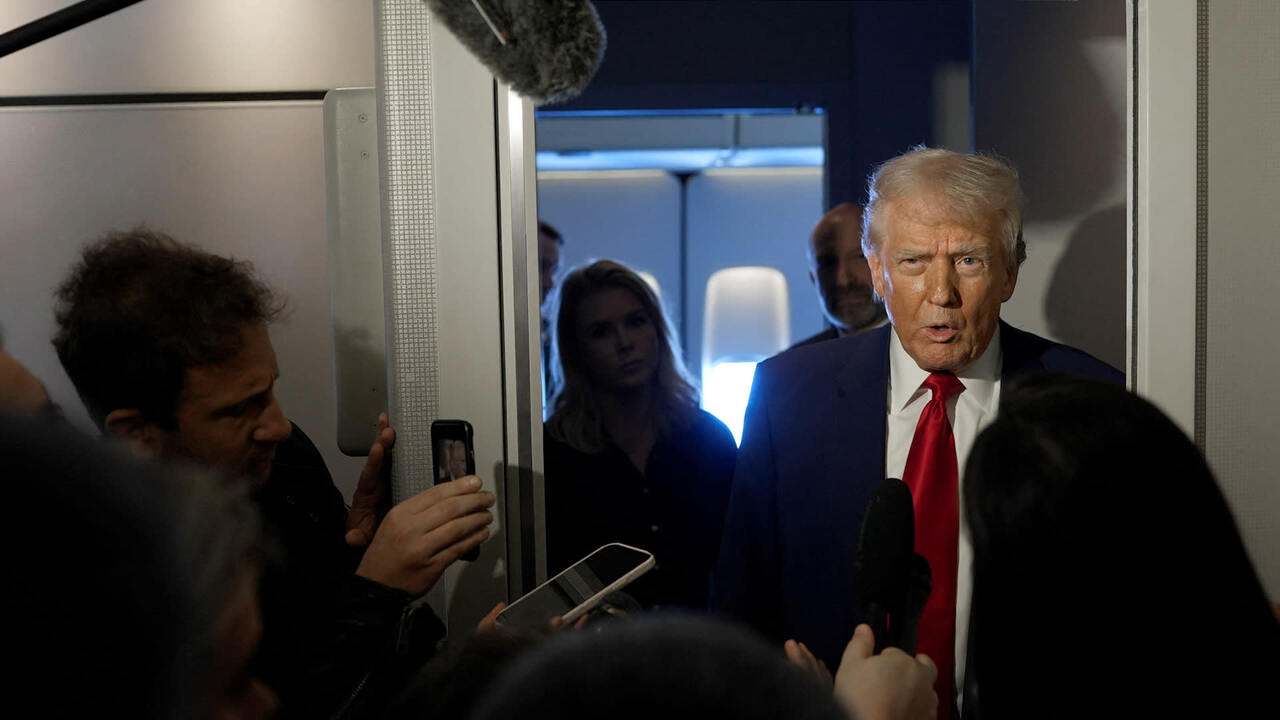
We now stand in the ruins of an empire of ideas fading like breath on a mirror.
Under Trump, allies are treated as rivals. Trade agreements are scorned. The moral confidence that once underpinned American power has curdled into grievance. There is no longer any real sense that the republic sees itself as steward of the global commons. It has grown weary of the burden and suspicious of those who once walked with it.
Australia was one of those nations.
A loyal foot soldier. We echoed the “rules-based order” rhetoric. We stood for the anthem. We sent troops to every war, no matter how senseless. Our soldiers died in the name of “alliance maintenance”.
We bet everything on the staying power of the idea of America, in the hope that it bought us security. But it was just an idea. A gamble. And Australia’s major parties never imagined it could be a busted flush.
Maybe Trump is doing us a favour. Maybe the liberal world order that Western politicians lauded was always an illusion. A long peace, for some, mistaken for permanence.
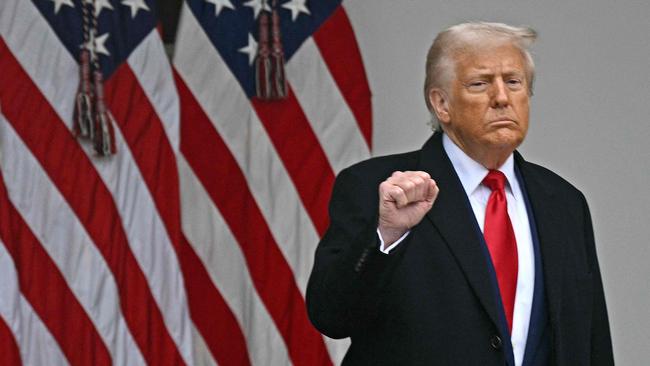
Rules observed only in the service of the strong. Rules built on democratic and human rights follies that countries such as China and Russia always scorned.
Now, that illusion is breaking.
This is no small thing. Even a myth has value. Paper money is no more than a promise of payment, it isn’t actually worth anything. Ideas are how we make sense of the world and when ideas change, the world changes.
As Gustave Le Bon wrote in 1895: “The memorable events of history are the visible effects of the invisible changes in human thought.”
This is a time of memorable events because the fundamental ideas that grounded us are shifting. And while America retreats, China advances with the grim assurance of a returning empire. This new settlement will be much worse for Australia than the old one. We will miss America when it is gone.
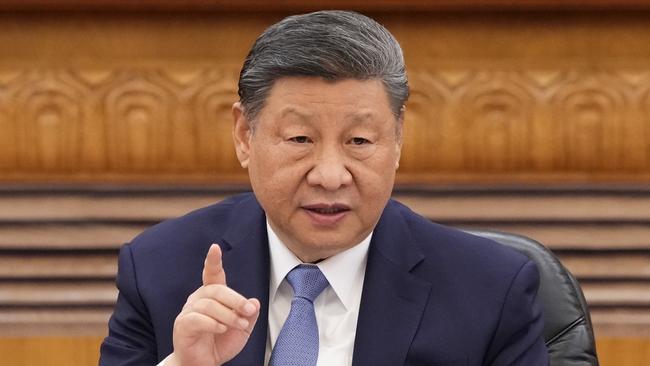
President Xi Jinping has read the signs of the times better than most. He speaks of a world undergoing “great change unseen in a century”.
“The most important characteristic of the world is, in a word, chaos,” Xi said, “and this trend appears likely to continue.”
We should be at least as concerned about the order Xi hopes to build as the one Trump wants to abandon.
Here the Albanese government is labouring under its own illusion – the belief that China can be managed as long as there is official silence on the long list of things Beijing finds irksome.
The government celebrates the end of China’s trade sanctions as proof that this plan is working. China’s ambassador to Australia has declared “relations have stabilised, improved and achieved a comprehensive turnaround” since the end of the Morrison government.
But all governments should be judged by their deeds, not their words. Based on this, where do we stand?
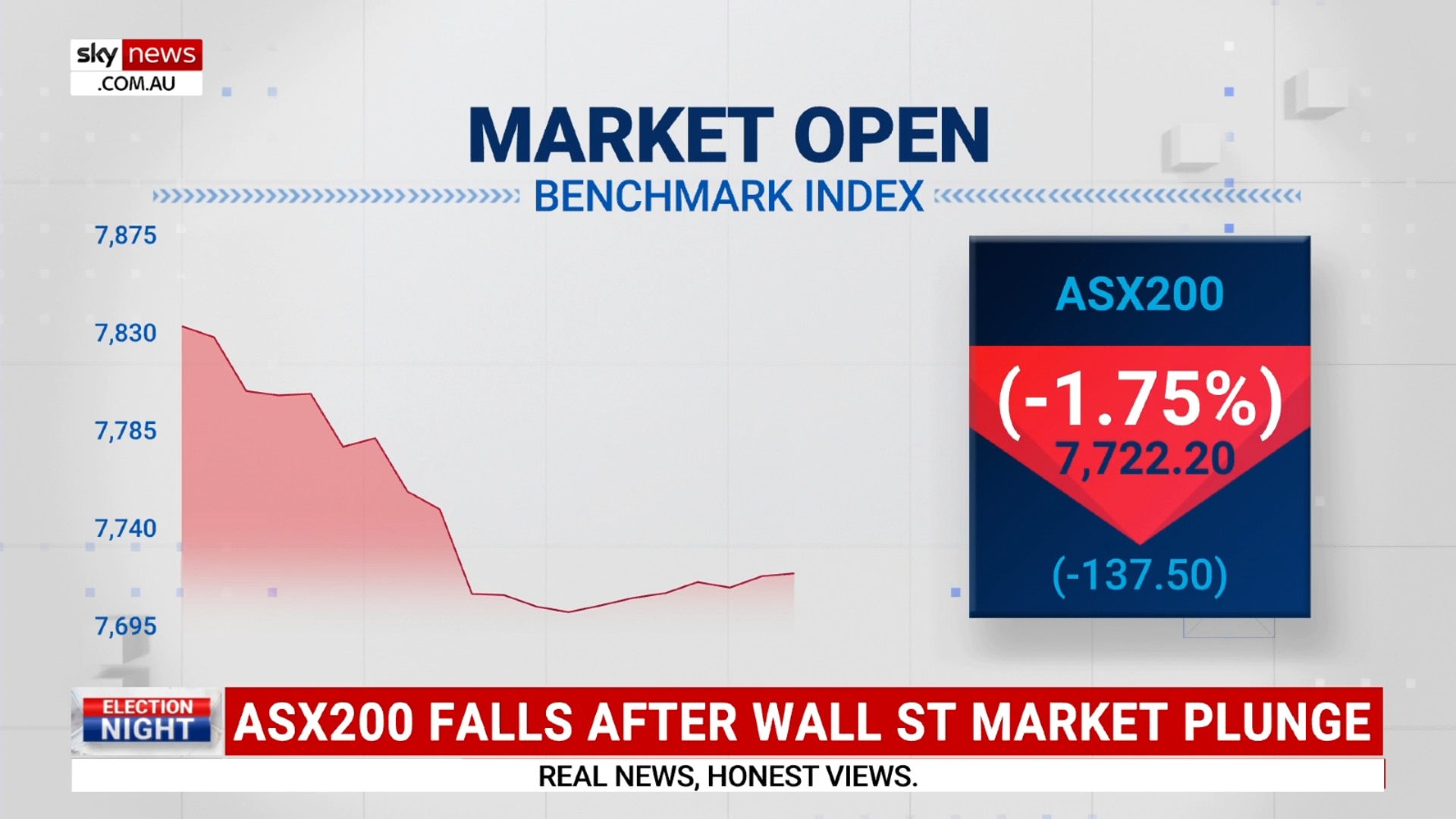
In February 2025, China sent three warships on a mission to circumnavigate Australia and conduct live-fire exercises in the Tasman Sea with minimal notice.
This forced the rerouting of 49 commercial flights. In response, Anthony Albanese said the warships were operating legally in international waters but a protest had been lodged with Beijing because more notice should have been given of the live fire.
The government’s disposition was that this event was unremarkable. But ponder this: there has not been a shot fired off Australia’s coast by a non-Allied power since the Imperial Japanese Navy sunk ships in World War II.
China showed us what gunboat diplomacy looks like and we met it with a whimper. Beijing now knows that our navy is incapable of circumnavigating our own coastline.
Now a Chinese research vessel has been observed travelling along Australia’s southern coast, closely shadowing key undersea communication cables.
Albanese says that while he would prefer the ship were not there, its activities are unremarkable and Australian agencies are monitoring its movements.
We speak sotto voce as China bellows: we are here and your world has changed. It does not seek war, it seeks submission. It seeks to underline our weakness and interprets silence as surrender. With each step back we take it will step forward.
Surely this should be at least as disturbing to the political class as a US-instigated trade war.
These are not just geopolitical moves. They are spiritual tremors. We once believed the future belonged to openness, to freedom, to democracy. That technology would flatten borders. That engagement would tame ambition. Instead, we are seeing the return of something older, darker, more primal: the logic of empires. The raw assertion of power.
The election campaign is a daily pantomime that screams we are not ready for this era. Not strategically, not economically and certainly not intellectually. Because to prepare would require naming the change. It would demand saying out loud what many fear to even think: that the world we knew is gone.
If appearances are any guide neither the ALP nor the Coalition has begun to grasp the scale of this moment.
The daily campaign fare is a study in tactics. The only thought on display about geopolitics is how it can be leveraged for a victory in May. If there is any strategic thinking beyond that it is well disguised.
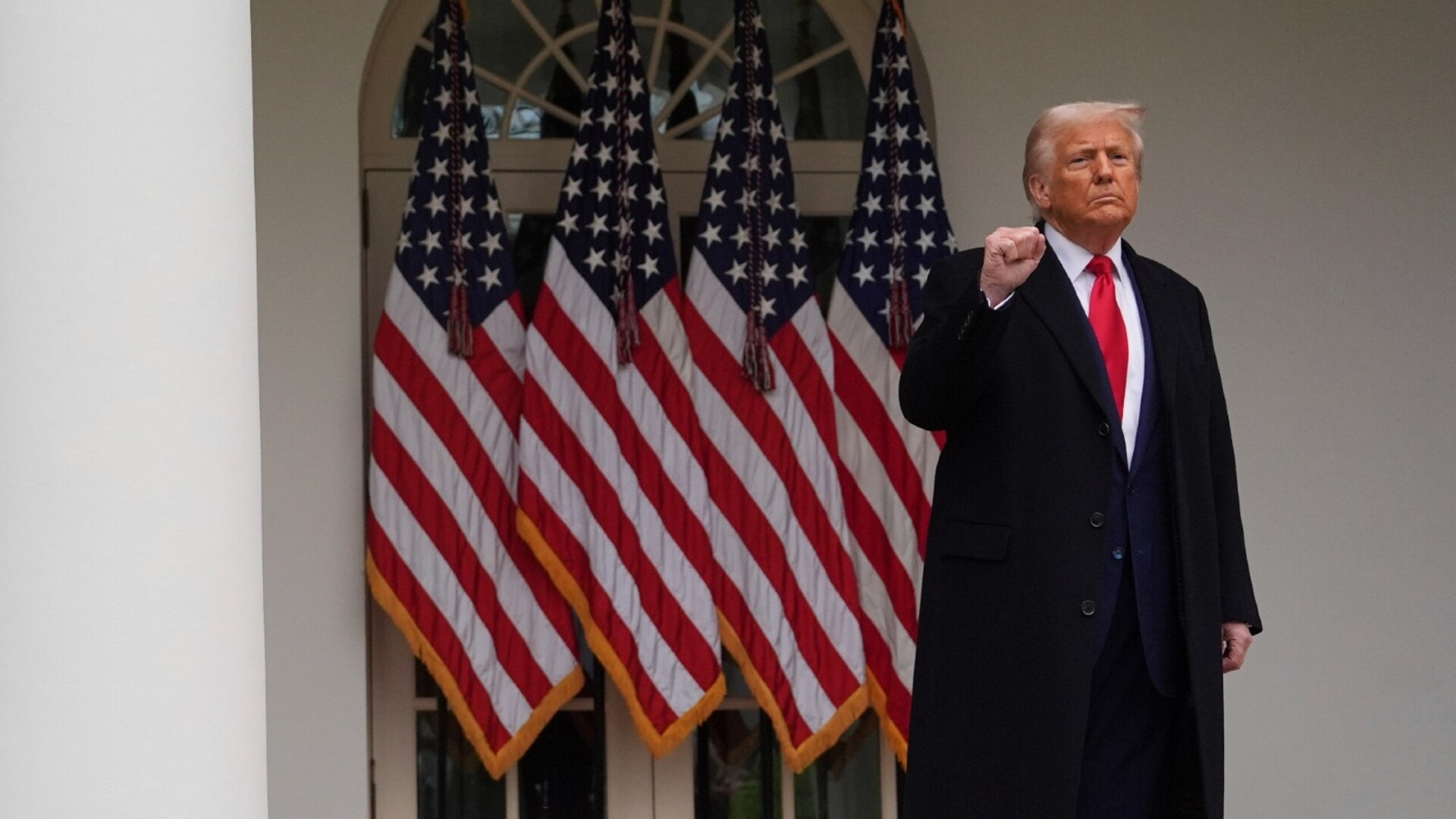
You can understand Labor’s thinking. Contempt has consequences. In Canada, Trump’s bullying has done what Justin Trudeau could not – revive long-dormant national pride and the hopes of the Liberal Party as that nation heads to the polls.
In Trump’s rhetorical wake, the once sky-high ambitions of a conservative landslide have dropped like a stone.
This should terrify the Coalition. Walking in the President’s shadow may work in Scranton or Miami but it’s a much harder sell in Sydney or Melbourne.
Claiming you are better able to deal with him may be interpreted as being the best mate of the guy in the bar with the broken bottle in his hand.
Labor will seize the opportunity to tie the Coalition to every part of the Trump agenda that unsettles Australians. There are already signs he is a drag on the Coalition’s ticket.
The Coalition derides Albanese as “weak” but there seems to be no credible idea about how to make Australia strong.
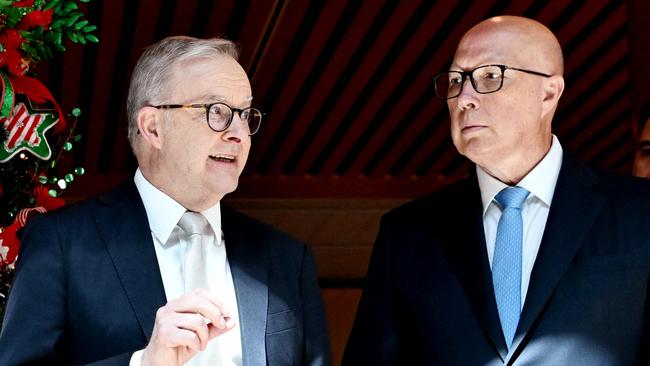
The differences between major parties are largely at the margins. And when the dust settles on this campaign, what plan does either party have to navigate this new era? Our politics remains rooted in a world that no longer exists.
There is no sense of emergency, no organising vision, no admission that the assumptions of the past have collapsed. We are left with technocratic managerialism at the end of history.
By their actions in this campaign the major parties clearly demonstrate the belief that Australians won’t do hard things. That they are not capable of understanding that when the world changes, we must change – and that demands tough choices.
It is time for difficult conversations and some hard decisions. We need to talk about trade-offs. We need to review all spending and build financial buffers, and that means some will lose benefits. We cannot keep borrowing to fund our lifestyle. We must prepare for shocks – economic, military, political.
The bipartisan embrace of net zero is a fool’s errand that needs to end. In the real world, countries responsible for 60 per cent of global emissions have no intention of hitting this target. If we continue to pursue it we will make ourselves poor and next to net-zero effect on cutting global emissions.
We sit on some of the richest energy resources in the world. If we do not harness them now, we will be weaker in the only terms that matter: industrial strength, national income and energy security. We cannot afford policies that privilege ideology over sovereignty.
In foreign policy we should do what we can to keep the US engaged in our region because, right now, we are incapable of defending ourselves. But we must spend more on defence and assume there will be no nuclear-powered submarines. Our goal should be clear: defend the homeland and make Australia a hard target.
Making Australia a hard target also means ensuring that we take social cohesion and foreign interference in our internal affairs seriously. The real threat to the nation is not war but comes in the grey zone of cyber theft and attacks, the insidious nature of some social media, the coercion of our people and the sinister voices of those who seek to divide us.
It is Lent. The lesson from the season is that we should never despair. There is always hope, no matter how difficult the times may seem.
But it is a time of reckoning. A time to contemplate what must die and what must be reborn.


